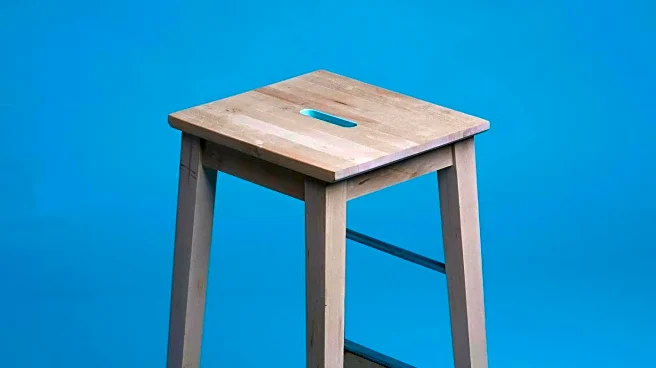What's Happening?
The GoodNature Program, a subsidiary of Seres Therapeutics, is offering individuals up to $1,500 per month to donate their stool. This initiative aims to collect samples from healthy donors to aid in the development of treatments for serious diseases, particularly infections caused by C. difficile bacteria. C. difficile can lead to severe gastrointestinal issues, including colitis, and is responsible for approximately 30,000 deaths annually in the U.S. The program requires donors to be nonsmokers, of healthy weight, aged between 18 and 46, and living near donation centers. Participants are expected to donate stool samples four to six times weekly and undergo regular blood tests.
Why It's Important?
This program represents a significant advancement in medical research, particularly in the treatment of C. difficile infections, which pose a severe threat to liver patients. By utilizing healthy stool samples, researchers can develop microbiome therapies that may offer new solutions for various health conditions, including cancer and Crohn's disease. The financial incentive also provides an opportunity for individuals to earn passive income while contributing to potentially life-saving research. The success of such programs could lead to broader acceptance and implementation of fecal microbiota transplants as a standard treatment option.
What's Next?
Participants in the GoodNature Program are expected to continue their donations for at least six months. The ongoing research may lead to the development of new therapies, including 'crapsules' that have shown promise in treating advanced cancer and liver disease. As the program expands, it may attract more donors, increasing the availability of samples for research. The potential success of these treatments could influence healthcare policies and encourage further investment in microbiome research.
Beyond the Headlines
The ethical implications of stool donation programs are noteworthy, as they challenge traditional perceptions of medical treatment and research. The use of human waste in medical therapies raises questions about consent, privacy, and the commercialization of bodily materials. Additionally, the program highlights the growing interest in microbiome science and its potential to revolutionize healthcare by addressing conditions previously considered untreatable.










